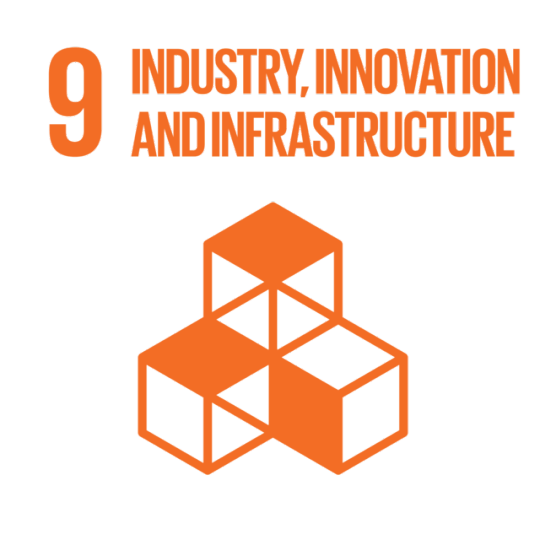#sdg9
Explore tagged Tumblr posts
Text
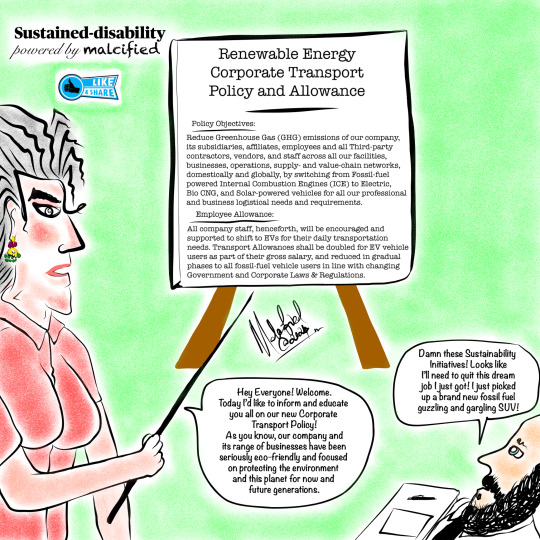
Hey! Today on #malcified, I’d like to share this sketch called #SustainedDisability focused on the #UN #SDGs and corporate #ESG policies that are key drivers of major transformation toward a more #green and #sustainable future. And of course our collective disability, when it comes to over-reliance on fossil-fuel and the awesome machines (#ICE) that run on it.
Disability: a physical or mental condition that limits a person's movements, senses, or activities. - Oxford
Renewable energy is energy derived from natural sources that are replenished at a higher rate than they are consumed. Sunlight and wind, for example, are such sources that are constantly being replenished. Renewable energy sources are plentiful and all around us. - UN
Environmental, social, and governance (ESG) is shorthand for an investing principle that prioritizes environmental issues, social issues, and corporate governance. - Wiki
Cars, planes, trains: where do CO₂ emissions from transport come from? #OurWorldinData. Link below on quick stats.
https://ourworldindata.org/co2-emissions-from-transport
UN SDG related Goals #SDG3, #SDG9, and #SDG12
https://sustainabledevelopment.un.org/topics/sustainabletransport#:~:text=Target%2011.2%20aims%20by%202030,with%20disabilities%20and%20older%20persons.
As the world transitions toward renewable energy to power their daily needs, #Transportation and #Logistics being a major contributor of CO₂ and other toxic emissions that are cause for #pollution, #climatechange, #globalwarming, and other major #naturaldisasters that are increasing threat, exposure, and impact financially and reputationally to businesses, organizations, economies, individuals and communities through the actualization of #PhysicalRisk and #TransitionRisk, it’s imperative that #PolicyMakers act with prudence and #Policymeasures at National Government Level, Industry and Sectoral Level, and at individual Business levels are implemented and enforced without delay.
#TonefromtheTop is always an essential driver for change and when leading global #MNCs and #Consulting firms pave the way to this necessary transition, raise awareness and enable transformation by implementing Policies and Initiatives that accelerate the culture of transition, the effects cascade throughout the sector creating an environment of #peerpressure, while enhancing business Reputation, Stakeholder engagement, Employee pride and ownership, Share values, Top and Bottom Lines, Goodwill and Asset Valuations while protecting and preventing a #HotHouseEarthScenario in the long run.
https://www.stockholmresilience.org/research/research-news/2018-08-06-planet-at-risk-of-heading-towards-hothouse-earth-state.html
#oneness#within is without#return to the source#wholeness#artwork#cartooning#nature#painting#malcified#awareness#hot house earth scenario#Sustainable Socioeconomic Pathways#SSPs#UN#sdg12#SDG13#SDG9#HR#Leadership#Transformation#electric vehicles#renewable energy#sustainability
1 note
·
View note
Text
🇵🇭 A Proud Milestone for the Philippines in Digital Governance 🌍
On behalf of Icons of Change, we extend our warmest congratulations to the Republic of the Philippines for being recognized as one of only 12 countries out of 193 worldwide to receive the prestigious UN E-Government Award—a powerful affirmation of the nation’s significant strides in digital governance and innovation.
The award was conferred by the United Nations Department of Economic and Social Affairs (UN DESA) on June 25, 2025, during the UN Public Service Forum held in Samarkand, Uzbekistan. This global recognition highlights the Philippines’ remarkable rise in both the UN E-Government Development Index (EGDI) and Online Service Index (OSI), moving from “High” to “Very High” status and jumping more than 15 places globally—an unprecedented achievement in just two years.
✨ At the heart of this digital transformation is Undersecretary David L. Almirol Jr. of the Department of Information and Communications Technology (DICT)—an Icons of Change Awardee 2025 under SDG 9: Industry, Innovation, and Infrastructure, recognized with the Excellence in Digital Innovation and e-Government Leadership Award.
From humble beginnings overseas to becoming a trailblazer in both the private and public sectors, Usec. David’s leadership in launching and scaling eGovPH Super App, eGovDX, and over 21 other integrated e-government platforms has redefined public service delivery in the Philippines. His efforts have helped facilitate over 500 million transactions, unify over 1,000 national and local government systems, and roll out a Digital National ID system now serving 88 million Filipinos—a leap in digital inclusion and efficiency.
Through initiatives such as the "Once-Only" policy, eGovCloud infrastructure, and cutting-edge platforms like eGovAI, eGovPay, and eSignature, the Philippines is now paving the way for a future-ready, citizen-centric government.
💡 These groundbreaking accomplishments not only fulfill President Ferdinand R. Marcos Jr.'s vision of a digitally empowered government but also exemplify the transformative spirit of the Icons of Change movement—leveraging technology to build transparent, responsive, and resilient institutions.
To Undersecretary David Almirol Jr., we salute your vision, humility, and trailblazing work in digital transformation. Your story inspires a new generation of leaders across sectors.
📣 Let us continue championing innovation that empowers people, advances sustainable infrastructure, and brings the promise of good governance closer to every Filipino.
#IconsOfChange #UNEGovernmentAward #DICTPhilippines #DavidAlmirol #eGovPH #DigitalTransformation #InnovationLeadership #SDG9 #TechForGood #PhilippineDigitalGovernance #eGovDX #eGovAI #eGovCloud #DigitalNation #GovMediaAwards2025 #RecognizingVisionEmpoweringTransformation
0 notes
Text
Do you know the #SDGs?

At Make My Day, #sustainability is at the core of everything we do. We believe in creating a cleaner, greener future by aligning our efforts with the Sustainable Development Goals (SDGs). Here are the SDGs we’re actively contributing to: #SDG7: Affordable and Clean Energy: By optimizing EV charging, we're making clean energy more accessible for businesses and individuals. #SDG9: Industry, Innovation, and Infrastructure: Our innovative solutions, such as the Fleet Electrification Planning Tool, are helping businesses build sustainable, efficient fleets. #SDG13: Climate Action: Our technology supports the transition to electric vehicles, significantly reducing carbon emissions in the transportation sector. We are committed to doing our part in accelerating global sustainability efforts and achieving these critical goals. Let’s drive change together! 🚗💡🌱 hashtag#Sustainability hashtag#SDG hashtag#SDGs hashtag#EU hashtag#UnitedNations hashtag#UN
1 note
·
View note
Video
youtube
SDG9.C Universal access to information and communications technology
#youtube#linktw.in/jxwWYo#EdTech PersonalizedLearning GlobalCollaboration SocialNetworking RemoteWork DigitalConnection DigitalEntertainment CreativeTech MediaDivers#Please like subscribe and share my channel Please click the link above
0 notes
Text

Enhancing CSR Impact through Collaboration with MARPU Foundation
What’s to Read:
Integration of CSR Goals with respect to corporate giants SDGs.
How MARPU impacts these strategies?
Partnering with MARPU.
MARPU’s SDG Initiatives.
Integration of CSR Goals with respect to corporate giants SDGs:
In today’s world, the concept of Corporate Social Responsibility (CSR) has become more crucial than ever. Companies worldwide are acknowledging their role in promoting Sustainable Development Goals (SDGs) and realizing that their responsibilities extend beyond just shareholders to encompass communities and the environment. Integrating CSR initiatives into business operations can create shared value, benefiting society. However, the true impact of CSR can only be unraveled via strategic partnerships with organizations that bear the passion and resources toward leading change in a sustainable way.
How MARPU impacts these strategies?
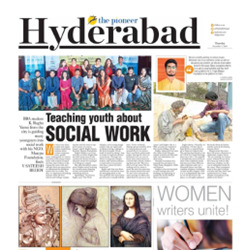
The SDGs provide a universal framework through which businesses can structure their CSR strategies. But setting specific targets also helps big corporations make a dent in broader, global efforts while enhancing their reputation and social impact. MARPU Foundation, with its work by way of provisioning clean water in rural communities, manifests this best. Their initiatives are detailed into SDG 6: ensuring clean water and sanitation.
In today’s digitally driven society, the use of new technologies can develop volunteering activities to their fullest potential in both efficiency and reach. Technology also enables the broadening of the volunteer base through remote volunteering by opening opportunities for people to participate regardless of where they may be located, thus aiding companies in engaging diverse individuals.
Therefore, overlaps between the values and goals of the corporation and the NGO are a must for the strategic partnerships to work. A notable example is the collaboration between a tech giant and the MARPU Foundation to promote digital literacy.
One of the major attributes the MARPU Foundation employs in establishing the impact of its programs is quantitative and qualitative measurement of data. Likewise, corporations must adopt strong analytics to capture direct and indirect results for their CSR interventions.
Partnering with MARPU:
CSR “CORPORATE SOCIAL RESPONSIBILITY”:
Unleash Positive Change: Adopt a Project
Powerful Impact with Corporate Donations
EMPLOYEE ENGAGEMENT:
Volunteerism: A New Chapter in Employee Engagement
Payroll Giving: Empowerment through Generosity
BRAND DEVELOPMENT:
Event Sponsorships: Merge Visibility with Impact
Donation Boxes: Simple Giving, Significant Impact
Cause-Related Marketing: Where Business Meets Compassion
MARPU’s SDG Initiatives:
The MARPU Foundation adheres to their work theme of supporting the SDGs:
– Environmental Sustainability:
1. SDG6(Clean Water and Sanitation)
2. SDG7(Affordable and Clean Energy)
3. SDG11(Sustainable Cities and Communities)
4. SDG12(Responsible Consumption and Production)
5. SDG13(Climate Action)
6. SDG14 &SDG15(Life below Water & Life on Land)
– Economic Development:
1. SDG1 & SDG2(NO Poverty & Zero Hunger)
2. SDG8(Decent Work and Economic Growth)
3. SDG9(Industry, Innovation and Infrastructure)
4. SDG10(Reduced Inequalities)
– Social Development:
1. SDG3(Good Health and Well-being)
2. SDG4(Quality Education)
3. SDG5 (Gender Equality)
– Partnership for Goals:
1. SDG17

Link: https://www.marpu.org/
1 note
·
View note
Photo
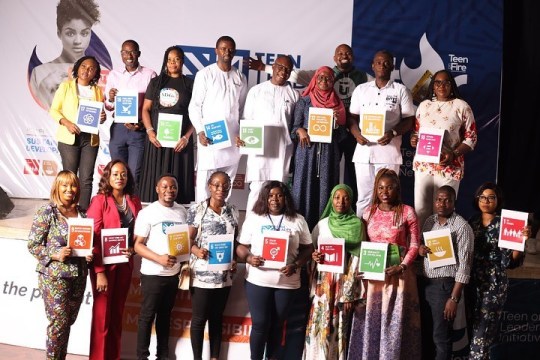
✨SOWING SEEDS OF GREATNESS. 💎Our teenagers today will be the leaders of tomorrow and the seeds we sow in them today will determine the type of fruits they will bear in the future. Today, I was proud to be one of the facilitators that worked with Teajay Chunu @unusualteajay in executing his great vision Teen Leader Shift Conference tagged My Nation, My Responsibility in the city of Abuja. @mytofnation 🎤I was in charge of helping the teenagers from various schools in the state brainstorm on the issues of SDG 9 - Industry, Innovation and Infrastructure. 💜I was so proud of the young delegates as they confidently shared their ideas with me and I am assured Nigeria has a bright future if we can only be more diligent in guiding these bright minds the right way. 📌Keep sowing seeds today because at the appropriate time, if you nurture them properly in a fertile ground, you will reap a mighty harvest. 📣The most fertile ground available is THE MIND; YOURS AND MINE. My name is Madame Merola, The B.A.N.G Creator and I ignite people to fulfill their God Ordained Legacy and Dreams (G.O.L.D) Godfidently. XoXo from #madamemerola #thebangcreator #mentoringteens #teenconference #sdg9 #transforminglives #transformingminds #igniter #sowingseedsofgreatness #facilitator #abujaconference #youthempowerment #nigeriaisblessed #nigerianyouth (at Sow Your Seed Today) https://www.instagram.com/p/Cn0EEdUDJZv/?igshid=NGJjMDIxMWI=
#madamemerola#thebangcreator#mentoringteens#teenconference#sdg9#transforminglives#transformingminds#igniter#sowingseedsofgreatness#facilitator#abujaconference#youthempowerment#nigeriaisblessed#nigerianyouth
0 notes
Photo

This is your chance to ask questions to leaders at the United Nations, which will be answered live at the ECOSOC #Youth2030 Forum — what do you want to know? 👉 Participate in this event and have the opportunity to ask the questions you have always wanted to ask. https://unyouthforum.cheerity.com/p/RhINnMTYS?r=ssi #ECOSOC #youngleaders #youthleaders #SDG #SDGs #SDGs2030 #SDG5 #SDG1 #SDG2 #SDG3 #SDG4 #SDG6 #SDG7 #SDG8 #SDG9 #SDG10 #SDG11 #SDG12 #SDG13 #SDG14 #SDG15 #SDG16 #SDG17 #raiseyourvoice #raiseyourvoicefornature #gender #Equality #humanrights #genderequality (at YOUTH FORUM) https://www.instagram.com/p/CcerSyOJ4Do/?igshid=NGJjMDIxMWI=
#youth2030#ecosoc#youngleaders#youthleaders#sdg#sdgs#sdgs2030#sdg5#sdg1#sdg2#sdg3#sdg4#sdg6#sdg7#sdg8#sdg9#sdg10#sdg11#sdg12#sdg13#sdg14#sdg15#sdg16#sdg17#raiseyourvoice#raiseyourvoicefornature#gender#equality#humanrights#genderequality
0 notes
Text
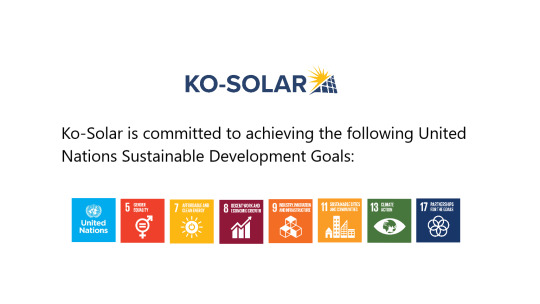
Ko-Solar is committed to achieving the seven United Nations Sustainable Development Goals: https://sdgs.un.org/goals
@sustdev
#solarenergy#united nations#unitednations#sustainableenergy#sustainability#climate emergency#climateemergency#SDG5#SDG7#SDG8#SDG9#SDG11#SDG13#SDG17#environment#solarpower#energy
0 notes
Photo

Stability is Strength #sdg12 #elijahartivism #elephant #responsibleconsumption #sdg9 #inovationandinfrastructure (at Banda, Kampala) https://www.instagram.com/p/CbIkmeWqiyY/?utm_medium=tumblr
1 note
·
View note
Photo

On duty at @uppfestgh , the @bbnzlive 10 days party you don’t want to miss 🥳 Today is official Day 7 with @stonebwoyb #stonebwoy 🎬 There has been, is and will be a line up of special events at UPPFEST from 30th December 2020 - 8th January 2021 🥁Jamming each day at @base.gh in Cantonments till 3 am 🎟Check post for Tickets detailing On day 7, we will donate a percentage of proceeds to industry innovation and infrastructure #SDG9 @bbnzlive_foundation 🔜UPPFEST …… #BuyATableGetAPool ᴏғғɪᴄɪᴀʟ ᴇᴠᴇɴᴛ ʜᴀsʜᴛᴀɢ: #UppFest #UppFest2020 by #BBnZ 🤹🏾♂️PRODUCTION SQUAD: @nivision @kwame.blay @ThinkMahogany @33pointonenine @tictokgh @muchlive.gh @pjkev @comeddiekadi @thezooxyz _____________________________________________ #ThinkMahogany #EventExperience : #MahoganyMagic ғʀᴏᴍ ᴛʜᴇ #PrecisePlanner #FlawlessCoordinator ᴀɴᴅ #DetailedDesigner 💫 #MahoganyEvents #GhanaEventsIndustry #EventsInGhana #EventPreneur #EventProfs #EventPlanner #EventDesigner #EventCoordinator #EventStylist EventStyling #EventProducer #PartyPlanner PartyDesigner #PartyCoordinator PartyStylist #WeddingPlanner #WeddingDesigner #WeddingCoordinator WeddingStylist #EventStyling #EventCoordination #JanuaryOfVictory (at THINK MAHOGANY EVENTS BY DEBRA-JANE) https://www.instagram.com/p/CJwNGkSHTbq/?igshid=197x4935fag5e
#stonebwoy#sdg9#buyatablegetapool#uppfest#uppfest2020#bbnz#thinkmahogany#eventexperience#mahoganymagic#preciseplanner#flawlesscoordinator#detaileddesigner#mahoganyevents#ghanaeventsindustry#eventsinghana#eventpreneur#eventprofs#eventplanner#eventdesigner#eventcoordinator#eventstylist#eventproducer#partyplanner#partycoordinator#weddingplanner#weddingdesigner#weddingcoordinator#eventstyling#eventcoordination#januaryofvictory
0 notes
Text
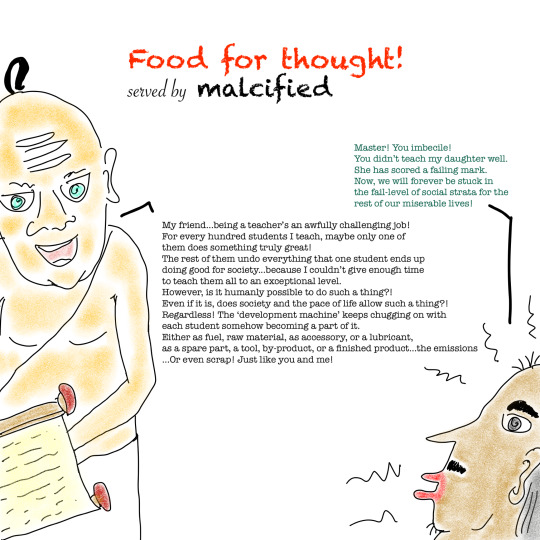
Today on #foodforthought I’d like to serve this sketch called #Machining.
Machine (def): an apparatus using mechanical power and having several parts, each with a definite function and together performing a particular task. - Oxford
The ‘#system’ or the ‘#machine’, may sometimes have a closed definition determined by a chosen few for their personal convenience to represent color, gender, race, religion, caste, government, institution, company, community, skill, an ecosystem, environment, universe, etc. Diving in deep into any one of these, we could easily forget we’re all part of a greater ‘machine’ and have our own respective function. Just the way we are, without any additional external machining.
Few questions to introspect on:
What machine(s) am I actively and passively a part of?
What is this ‘Development Machine’?
Do I want to continue being a part of the particular machine? Do I have a choice?
Does failing at something define our ‘destiny’? Does succeeding change our destiny?
Is being scrap really that bad?
Considering this sketch is about education, equality, work, and a machine, apart from other things. I’d like to raise awareness on the following SDGs with links shared below.
#SDG4: Inclusive and Equitable Quality Education
https://sdgs.un.org/goals/goal4
#SDG5: Gender Equality and Empower Women and Girls
https://sdgs.un.org/goals/goal5
#SDG8: Decent Work and Economic Growth
https://www.un.org/sustainabledevelopment/economic-growth/#:~:text=Goal%208%20is%20about%20promoting,global%20economy%20under%20serious%20threat.
#SDG9: Industry Innovation and Infrastructure
https://sdgs.un.org/goals/goal9
#awareness#malcified#oneness#within is without#return to the source#wholeness#nature#artwork#cartooning#painting#education#SDG4#SD5#SDG8#UN#compassion#quality#foodforthought
0 notes
Text
Icons of Change Awards 2025
Sustainable Development Goal (SDG) 9: Industry, Innovation, and Infrastructure
Excellence in Digital Innovation and Financial Inclusion Award
Lito Villanueva
Lito Villanueva is a pioneering force in digital transformation and inclusive finance in the Philippines. As the Executive Vice President and Chief Innovation and Inclusion Officer at Rizal Commercial Banking Corporation (RCBC), he has led the bank's digital revolution, introducing groundbreaking innovations that have earned RCBC over 250 awards, including being recognized as the Philippines’ Best Bank for Digital for five consecutive years (2020-2024) by Asiamoney and Euromoey.
Beyond his role at RCBC, Villanueva serves as the Founding Chairman of FinTech Alliance.ph, the country's largest industry association of startups and unicorns, collectively generating over 95% of digital transaction volume in the Philippines. He also holds leadership positions as the Permanent Senior Council Advisor for the ASEAN FinTech Forum, Co-Founder of the Asia FinTech Alliance, and Founding Chairman of the South Africa-based Alliance of Digital Finance and FinTech Associations.
Villanueva's commitment to financial inclusion and digital innovation has been recognized global. He was named Chief Innovation Officer of the Year by The Banker in 2021, Innovator of the Year by the Asian Management Excellence Awards, and was honored as Mr. FinTech of the Philippines by BizNews Asia. His leadership has been instrumental in positioning the Philippines as a significant player in the global fintech landscape.
For his unwavering dedication to advancing digital innovation and promoting financial inclusion, Lito Villanueva is honored with the Excellence in Digital Innovation and Financial Inclusion Award.
#IconsOfChange2025#SDG9#IndustryInnovationInfrastructure#DigitalTransformation#FinancialInclusion#LitoVillanueva#RCBC#FinTech#InnovationLeadership#RecognizingVisionEmpoweringTransformation
0 notes
Photo

#ConfassociazioniInnovationAdvisory #Test online Quale é la #Sostenibilitá della tua #Azienda? https://m.youtube.com/watch?v=B7Y0Fqm-FSg #FestivalSviluppoSostenibile #ASviS #SDG9 #CSR #ESG #NeoManager #Manager #Innovazione #FinanzaSostenibile #MettiamoManoAlFuturo #ConfassociazioniCoaching #Test: https://www.fyrebox.com/play/quiz-sostenibilita-sdgs_0oQwR7Jdk https://www.instagram.com/p/ByBAk1AIVAG/?igshid=15slvoo533q98
#confassociazioniinnovationadvisory#test#sostenibilitá#azienda#festivalsvilupposostenibile#asvis#sdg9#csr#esg#neomanager#manager#innovazione#finanzasostenibile#mettiamomanoalfuturo#confassociazionicoaching
0 notes
Photo

@militaryappnet #Jandarma Komando Teröristle Mücadele Harekatı Okul Komutanlığında, 18 Ocak’ta başlayan “13’üncü Dönem Jandarma Astsubay Teröristle Mücadele Harekatı Eğitimi” 12 Mart’ta sona ermiştir. 📍Yenifoça https://www.instagram.com/p/CMbzCi-sDG9/?igshid=1jqbwk9reuffl
2 notes
·
View notes
Photo

#unitednations #world #humanrights #india #usa #switzerland #unhq #peace #sdg #sdgs2030 #sdgs4all #sdg16 #sdg9 #climatechange #people #4karanvir #ppptech #Visionum #BeTheVision #singh #punjab #punjabi #sikh #voice #impact #revolution #globalentrepreneur #mrsingh (at United Nations Office at Geneva)
#india#punjabi#sdg9#singh#sdgs2030#visionum#globalentrepreneur#impact#unhq#sdg#climatechange#people#4karanvir#switzerland#bethevision#revolution#mrsingh#humanrights#peace#unitednations#voice#usa#world#sdgs4all#sdg16#sikh#punjab#ppptech
0 notes
